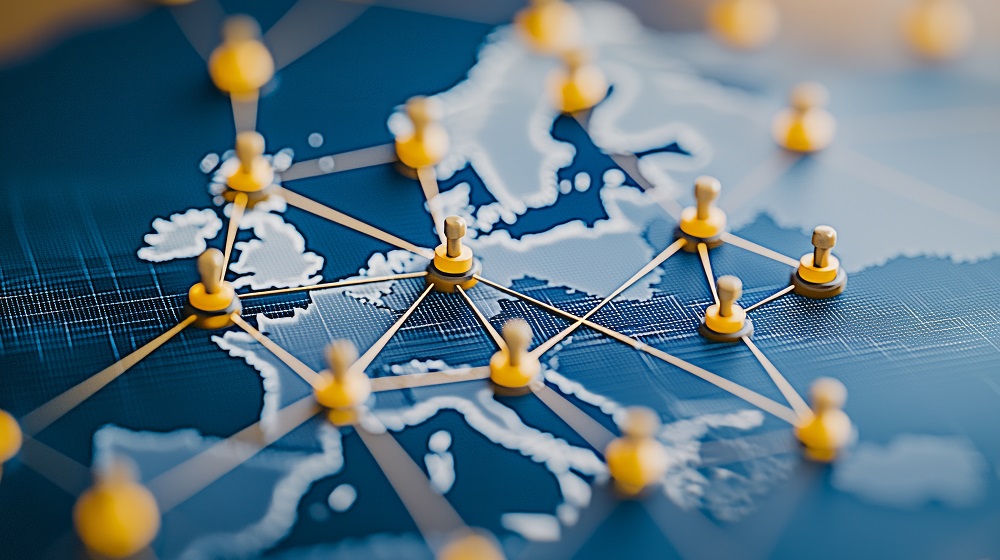
IKNL & EHDS: working together towards future-proof oncological care
The European Health Data Space (EHDS) offers opportunities to improve the availability and usability of health data across Europe. This regulation requires every EU member state to establish a Health Data Access Body (HDAB) to facilitate data access for research, innovation, and policymaking.
Currently, much health data is fragmented across systems, leading to missed opportunities. The EHDS can change this—if it is properly implemented. That’s why IKNL is working with partners like Health-RI to build a future-proof data structure within Dutch oncology care.
Data Gains Value Through the Right Context and Expertise
Data is essential for identifying trends, improving patient outcomes, shaping effective policies, and delivering appropriate care. But data only becomes truly valuable when it is:
-
Carefully and securely collected
Together with healthcare professionals, we ensure standardized, validated data entry with clinical context in mind. -
Reliably structured and coded
We code, link, and enrich data sources, perform quality checks, and correctly interpret missing data. -
Expertly selected to answer research questions
We translate research and policy questions into feasible data requests, prioritizing privacy and data minimization. Our analysts identify data pitfalls and ensure scientific reliability. -
Accurately interpreted
We monitor trends in incidence, survival, and quality of life and publish findings in collaboration with partners. -
Translated into actionable insights
We actively feed insights back into clinical practice, policy, and public communication—and remain engaged until impact is achieved.
In oncology—characterized by complex care pathways and rapidly evolving knowledge—domain expertise is indispensable for accurate interpretation and application of data. IKNL holds this unique end-to-end knowledge: from data collection and coding to analysis, interpretation, and translation into practice and policy.
Comprehensive knowledge of the entire data chain is essential for appropriate and sustainable cancer care. IKNL possesses this unique expertise—from EHR registration to policy development—linking data to wisdom and insight to impact.
Building Data-Driven Cancer Care Together
The EHDS marks a turning point in how we approach health data. By leveraging our chain-wide knowledge, IKNL actively contributes to a future in which data is not only available, but also truly fit for purpose in improving cancer care.
Series: From Source to Impact
In a five-part series, IKNL highlights how we not only make oncology data available but also ensure its fitness for purpose. We illustrate how our expertise across the entire data chain contributes to data-driven cancer care—from clinical registration to policy impact.
What is the European Health Data Space (EHDS)?
The European Health Data Space (EHDS) is a new EU regulation aimed at improving and securing the sharing of health data across Europe. It enables data use in two main ways:
-
For healthcare delivery (primary use) – for example, allowing a doctor to access a patient’s medical records from another EU country.
-
For research, policy, and innovation (secondary use) – such as analyzing trends in cancer care or improving the organization of appropriate care.
Why Is EHDS Important?
Health data is often fragmented across systems, institutions, and countries. EHDS promotes better integration, improved access, and secure data processing. This leads to improved care, prevents redundant testing, and supports scientific research and policy development.
The EHDS:
-
Strengthens patients’ rights to access and control their own data;
-
Requires member states to establish a Health Data Access Body (HDAB) to manage secondary data use;
-
Obligates electronic health record (EHR) vendors to ensure interoperability, strong security, and auditability of access to health data.
What Does This Mean for the Netherlands?
The EHDS came into force on March 26, 2025, with a phased rollout and deadlines at 2, 4, and 6 years. In the Netherlands, steps are being taken toward:
- Establishing a national HDAB
- Adapting legislation and infrastructure
- Creating secure digital environments for data access
- Setting clear agreements on data minimization, privacy, and traceability.
How Does IKNL Contribute?
As a data-driven knowledge organization, IKNL offers expertise across the entire data chain—from secure registration to meaningful data application. Within cancer care, we focus on making data not just available, but above all fit for purpose for care, research, and policy.
Together with partners like Health-RI, we work toward a future where health data contributes to better, more affordable, and accessible care—in the Netherlands and across Europe.